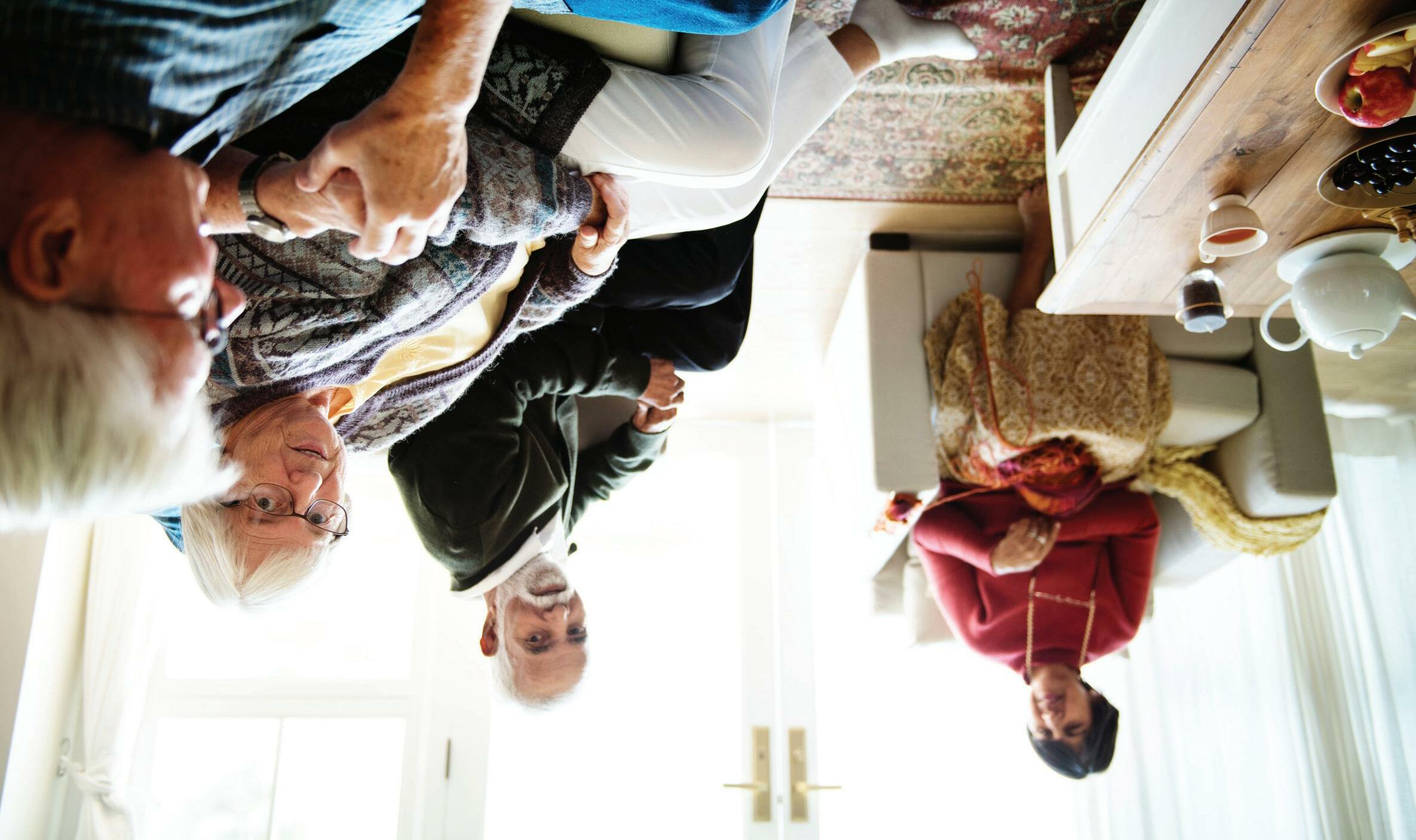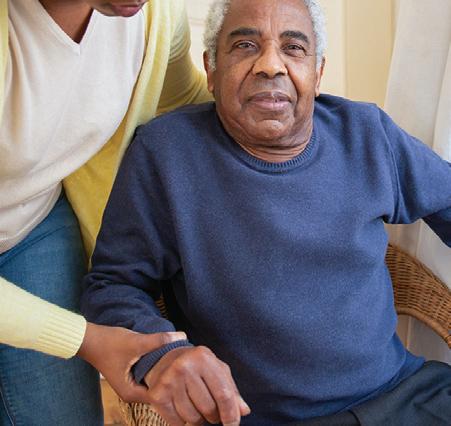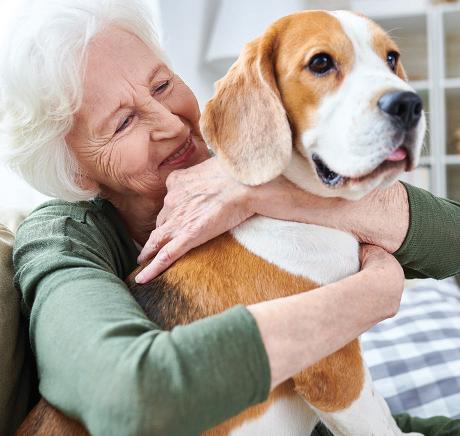FALL PREVENTION

Lessen Your Risk of Falls
















A simple accident like tripping on a rug or slipping on a wet floor can change your life. If you fall, you could break a bone, which thousands of older adults experience each year. For older people, a broken bone can also be the start of more serious health problems and can lead to long-term disability.



If you or an older adult in your life has fallen, you’re not alone. More than one in four people age 65 years or older fall each year. The risk of falling—and fall-related problems—rises with age. However, many falls can be prevented. For example, exercising, managing your medications, having your vision checked, and making your home safer are all steps you can take to prevent a fall.
Many older adults fear falling, even if they haven’t fallen before. This fear may lead them to avoid activities such as walking, shopping, or taking part in social activities. But staying active is important to keeping your body healthy and actually helps to prevent falls. So don’t let a fear of falling keep you from being active! Learn about what causes falls and how to lower your risk of falling so you can feel more comfortable with staying active.
* Source: nia.nih.gov
Many things can cause a fall:
• Your eyesight, hearing, and reflexes might not be as sharp as they were when you were younger.
• Certain conditions, such as diabetes, heart disease, or problems with your thyroid, nerves, feet, or blood vessels can affect your balance and lead to a fall.
• Conditions that cause rushed movement to the bathroom, such as incontinence, may also increase the chance of falling.
• Older adults with mild cognitive impairment or certain types of dementia are at higher risk of falling.
• Age-related loss of muscle mass (known as sarcopenia), problems with balance and gait, and blood pressure that drops too much when you get up from lying down or sitting (called postural hypotension) are all risk factors for falling.
• Foot problems that cause pain, and unsafe footwear such as backless shoes or high heels, can also increase your risk of falling.
• Some medications can increase a person’s risk of falling because they cause side effects such as dizziness or confusion. The more medications you take, the more likely you are to fall.
• Safety hazards in the home or community environment can also cause falls.
If you take care of your overall health, you may have a lower chance of falling. Most of the time, falls and accidents don’t just happen for no reason. Here are a few tips to help lessen your risk of falls:
Plan an exercise program that is right for you. Regular exercise improves muscles and makes you stronger. Exercise also helps keep your joints, tendons, and ligaments flexible. Mild weight-bearing activities, such as walking or climbing stairs, may slow bone loss from osteoporosis, a disease that makes bones weak and more likely to break.
Yoga, Pilates, and Tai chi can all improve balance and muscle strength. You can also try lifting weights or using resistance bands to build strength.
FALL-PROOF YOUR LIVING SPACE
The easiest change is to remove drop carpets. It is easy to trip over the loose edges.
Even small changes in sight and hearing are linked to an increased risk for falls. When you get new eyeglasses or contact lenses, take time to get used to them. Wear your glasses or contacts as your eye doctor advises. If you have a hearing aid, be sure it fits well and wear it.
FIND OUT ABOUT THE SIDE EFFECTS OF ANY MEDICINES YOU TAKE
If a drug makes you sleepy or dizzy, tell your doctor or pharmacist.
If you are tired, you are more likely to fall.
Too much alcohol can lead to balance problems and falls, which can result in hip or arm fractures and other injuries.
Getting up too quickly can cause your blood pressure to drop. That can make you feel wobbly.
Using canes and walkers correctly can help prevent falls. If your doctor tells you to use a cane or walker, make sure it’s the right size for you. Walker wheels should roll smoothly.
If you borrow walking support equipment from a friend, ask your health care provider to make sure the equipment is the correct size and is safe to use. This is exceptionally important when you’re walking in areas you don’t know well or where the walkways are uneven. A physical or occupational therapist can help you decide which devices might be helpful and teach you how to use them safely.
These can be very slippery! Use an ice melt product or sand to clear icy areas by your doors and walkways.
Use a shoulder bag, fanny pack, or backpack to leave your hands free to hold on to railings.
To fully support your feet, wear nonskid, rubber-soled, low-heeled shoes. Don’t walk on stairs or floors in socks, shoes, or slippers with smooth soles.
ALWAYS TELL YOUR DOCTOR IF YOU HAVE FALLEN SINCE YOUR LAST CHECK-UP, EVEN IF YOU DID NOT FEEL PAIN WHEN YOU FELL
A fall can alert your doctor to a new medical problem or issues with your medications or eyesight that can be corrected. Your doctor may suggest physical therapy, a walking aid, or other steps to help prevent future falls.
KEEP YOUR BONES STRONG TO PREVENT FALL-RELATED FRACTURES
A big culprit for losing our physical abilities as we grow older is the agerelated loss of muscle mass and strength, which is called sarcopenia. While there is no way to fully “stop the clock,” it’s possible for many older adults to increase muscle strength with exercise, which can help maintain mobility and independence into later life.

The bottom line is to get moving.
Any physical activity is better than no physical activity. Even a couple minutes per day matter, and small changes lead to big improvements.
Whether you are at home or somewhere else, a sudden fall can be startling and upsetting. If you do fall, stay as calm as possible and take the following steps:
Breathe and press your emergency call pendant.
Relax. Help is on the way.
Remain still on the floor or ground. This will help you get over the shock of falling. Again, help is on the way.
Stay physically active
Try balance and strength training exercises
Tidy Your Path - Be on the lookout for cords, mats, or carpet not lying flat. Clean up liquid spills immediately.
Keep Your Focus - Look up and get off your smart phone. It can wait. Watch where you’re stepping.
Have your eyes and hearing tested
Find out about the side effects of any medicines you take
Get enough sleep
Avoid or limit alcohol
Stand up slowly
Conquer the Stairs - Going up (or down) is good for your well-being. Always use the handrail, and don’t rush.
Don’t Improvise - Use a step stool or ladder instead of climbing on things like chairs and boxes.
Adjust for Weather - Take small steps and “walk like a penguin” if you suspect ice or slippery surfaces are in your path.
Pick the Right Footwear - Good shoes are your best friend. Make sure they are stable, fit well, have good tread and are slip-resistant.
Independent living means just that! Living, playing and existing just like everyone else. As we age, many of our needs change—home upkeep is more difficult, or we’d like someone to drive us or we simply want more companionship with others our age. An independent living community or retirement home may be an excellent option.
Available at: Delta
Assisted Living at Crossroads makes you feel like you’re at home, but now, you have access to the highest quality personal care support services. No more cooking as all your meals are provided in our restaurant style dining rooms. Daily activities are designed to keep you fresh and challenged. And if you need medication management, help with bathing, dressing, or transportation, it’s all here at Crossroads.
Available at: Delta and Northglenn


When remembering has become difficult and Alzheimer’s or other dementia care is necessary, Crossroads has a state-of-the-art solution for your loved ones. From the design of the building to the food, to the one-on-one care, to dealing with difficult behaviors we will take care of your family.



Available at: Delta and Lakewood
